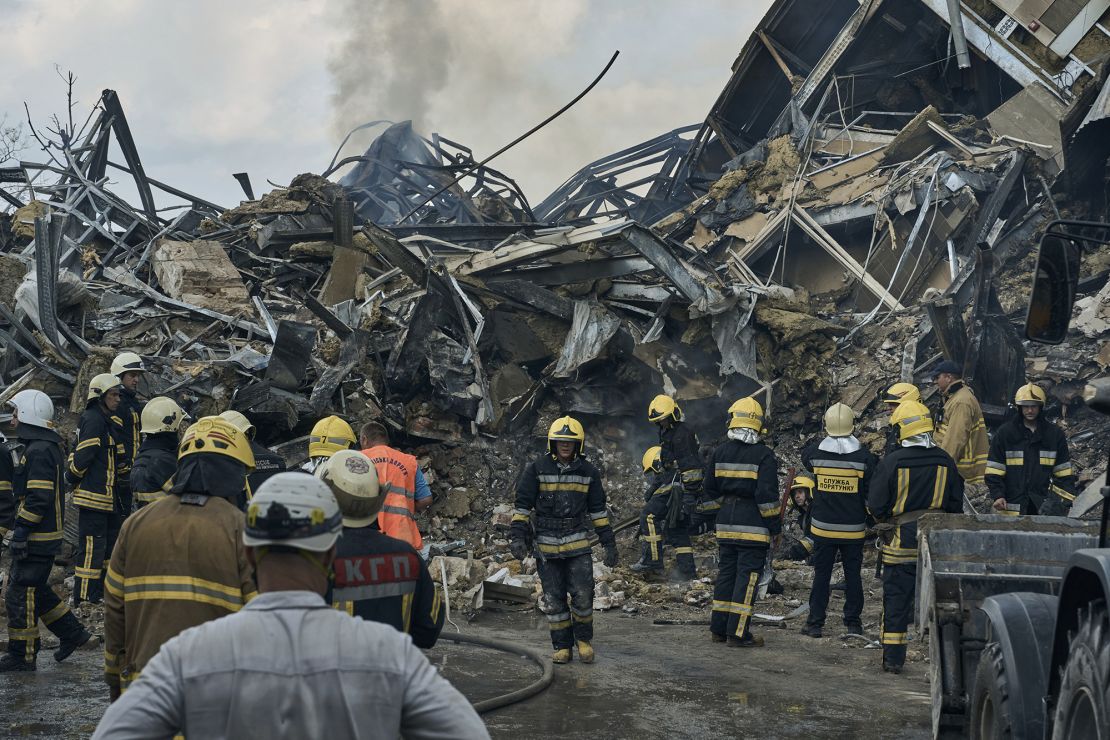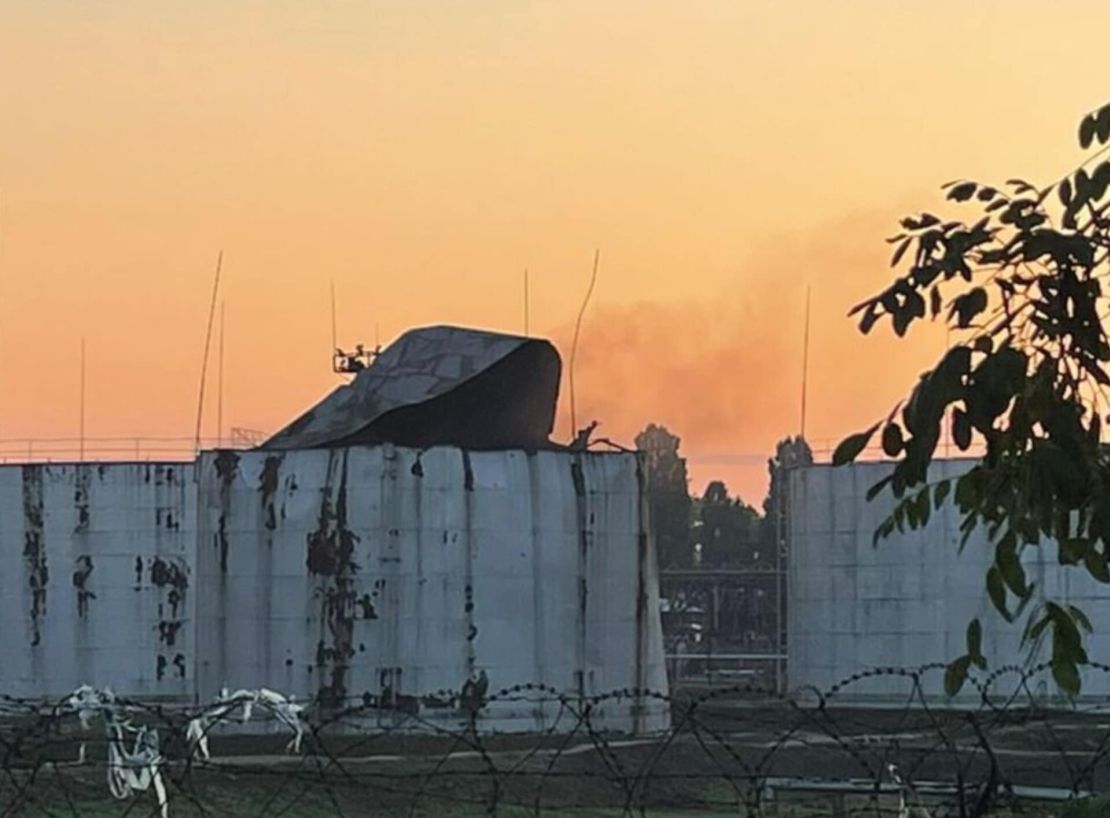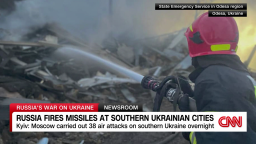The US and its allies are grappling with how to avert a global food crisis following Moscow’s withdrawal from the Black Sea grain deal and its subsequent attacks on Ukraine’s ports and storage facilities.
To keep Ukraine’s massive farming industry afloat, and with the harvest only a few months away, US and Western officials are looking for any options to increase storage capacity, and whether any more grain, wheat or barley can be driven or railed out of Ukraine.
Over the past several days, a number of urgent meetings have been convened by organizations including the United Nations, NATO, and the European Commission. There have been new pledges of support for Ukraine’s agricultural industry, including a new $250 million commitment from the US Agency for International Development.
But officials acknowledge that none of those solutions will be able to replace the millions of tons of food Ukraine was able to export from its deep water ports.
Since leaving the grain deal on July 17, Russia has unleashed a flurry of attacks on grain supplies in key Ukrainian cities, including the port city of Odesa, wiping out 60,000 tons of grain, enough to feed 270,000 people for a year, British Ambassador to the UN Barbara Woodward said last Friday.
Moscow’s attack last week on Ukraine’s Chornomorsk port, which “facilitates nearly 70 percent of Ukrainian wheat exports to developing countries, caused damage that experts say will take at least a year to repair,” UN Ambassador to the United Nations Linda-Thomas Greenfield said Wednesday.
And earlier this week, Russia targeted a Ukrainian port on the Danube River near NATO ally Romania.
“To see Russian forces targeting…Danube river ports and grain silos, it’s just chilling in the extreme,” said USAID Administrator Samantha Power, who briefed reporters Tuesday after returning from Ukraine.
In an interview with CNN’s Erin Burnett Wednesday, Power said she is “really worried” about a global food crisis, noting that as of mid-day Wednesday, wheat prices were up 10% since Russia abandoned the agreement.
The grain deal, brokered by Turkey and the United Nations, lasted about a year and allowed billions of dollars worth of grain and wheat to safely transit out of war-torn Ukraine via the Black Sea. Now, Russia’s defense ministry has warned that ships sailing to Ukraine’s Black Sea ports will be viewed as military targets.
Ukraine accounts for large portions of the world’s food supply, including 10% of the world wheat market, 15% of the corn market, and 13% of the barley market, according to the European Commission. Two thirds of the wheat that left Ukraine via the Black Sea ports went to developing countries, said Power.
Speaking separately in an interview with CNN’s Erin Burnett Wednesday, Power said she is “really worried” about a global food crisis, noting that as of midday Wednesday, wheat prices were up 10% since Russia abandoned the agreement.
“Russia, by weaponizing food, is doing something truly unconscionable,” US Secretary of State Antony Blinken said last week at the Aspen Security Forum.
A wave of strikes on Odesa

In its strikes last week on Odesa, Russia claimed it was targeting facilities related to the seaborne attack drones Ukraine has used in the Black Sea, including against the Kerch Bridge. But repeated strikes against grain and food infrastructure, as well as civilian buildings – intended or not – left a city shaken after a year of relative quiet as the grain deal held.
Despite the repeated attacks, the residents of Odesa, sometimes called “the Pearl of the Black Sea,” still headed to the beaches during the day. People sat in cafes and walked their dogs. But at night the streets fell silent and if the air raid sirens blared, families could be seen scurrying into basements.
During that week, Russia fired some of the most notable pieces of its arsenal at Odesa: a variety of land-, sea- and air-launched cruise missiles along with Iranian -made Shahed drones. Massive blasts shook the city, shattered windows and caused car alarms to go off. The buzzing of the drones’ engines could be heard over the rooftops as red tracer fire, looking for the drones, shot up in the dark sky.
Some of the most destructive strikes were largely out of sight – in secure port or grain facilities.
An administration official familiar with discussions told CNN the US is focused on maintaining safe passage of export ships through the Russian-occupied Black Sea, and supporting UN Secretary-General António Guterres in negotiating a breakthrough.
‘Road, river and rail’
Complicating matters is that five EU countries, four of whom border Ukraine – Poland, Slovakia, Hungary, Romania and Bulgaria – have currently banned the import of Ukrainian grain to protect their own agricultural industries, although they will allow it transit through their countries.
While past US contributions had gone into developing “alternative shipping routes,” Power on Tuesday said that, “going forward, we’re going to want to invest in additional storage capacity because harvests that had planned to be transmitted to the rest of the world via the Black Sea are now going to need someplace to be stored safely so they don’t rot while they wait to reach global markets.” More storage will also be needed as Ukraine works to repair or replace grain silos that are damaged by Russian strikes.

There are other routes – “road, river, and rail,” in Power’s words – to get food products out of Ukraine.
The US, Ukraine, and Western allies have been discussing how to utilize such routes since Russia’s invasion began, choking off the export of critical food supply and driving up inflation in developing countries. During such talks in 2022, Ukraine told Biden administration officials that transporting one year’s grain harvest by rail into Romania and Poland would take three years, according to a former senior administration official involved in discussions.

After the grain deal was reached last year, the European Union and the US worked closely to expand the land routes to transport Ukrainian agricultural products through other countries and by adjusting railroad lines to accommodate different kinds of train gauges.
Although there have been major increases in the amounts of products exported on the alternative routes, they are more expensive for Ukrainian farmers, who are already dealing with challenges like unexploded mines on their farmlands or continued repercussions of the Covid-19 pandemic or worker shortages.
“To be clear, the effects of Ukraine exporting less will be Ukraine producing less,” Power said.
“This is a very intentional, not only use of food as a weapon of war, weaponizing food, including food that is reaching the poorest communities internationally, but it also appears to be part of an ongoing effort to decimate Ukraine’s economy,” Power added.
Speaking at a Russia-Africa summit in St. Petersburg, Russian President Vladimir Putin announced that Russia will send grain free of charge to six African nations in the next few months, repeating previous claims that Russia can replace Ukrainian grain supplies to Africa.
Warnings of what comes next
Kees Huizinga, a farmer in Ukraine, told CNN that “there are no complete alternatives for the grain export through the Black Sea.”
There is nowhere for Ukrainian grain to go with the ports closed, blocked or damaged and four of Ukraine’s neighbors blocking the import of wheat, Huizinga explained.
For the first several months of the war, Russia blockaded key Ukrainian ports, keeping millions of tons of grain off of the global food market and spiking global food prices.
Now the risk of those consequences have returned, along with warnings from the West that Russia could go even further.
“Last week, the United States shared information with the international community warning that Russia was looking to expand its targeting of Ukrainian grain facilities. Russia did just that,” Katherine Brucker, the charge d’affaires at the US Mission to the Organization for Security and Cooperation in Europe, said Tuesday. “We believe its targeting might also include attacks against civilian shipping in the Black Sea. Our information indicates Russia laid additional sea mines in the approaches to Ukrainian ports. We believe this is a coordinated effort by Russia to justify any attacks against civilian ships in the Black Sea and then blame Ukraine.”
“As we condemn Russia for its bombardment of Ukraine’s port cities and export infrastructure, we must remain vigilant to ways in which Russia looks to expand the conflict and continue to blame others for its unconscionable actions,” she said.
This story has been updated with additional information.



